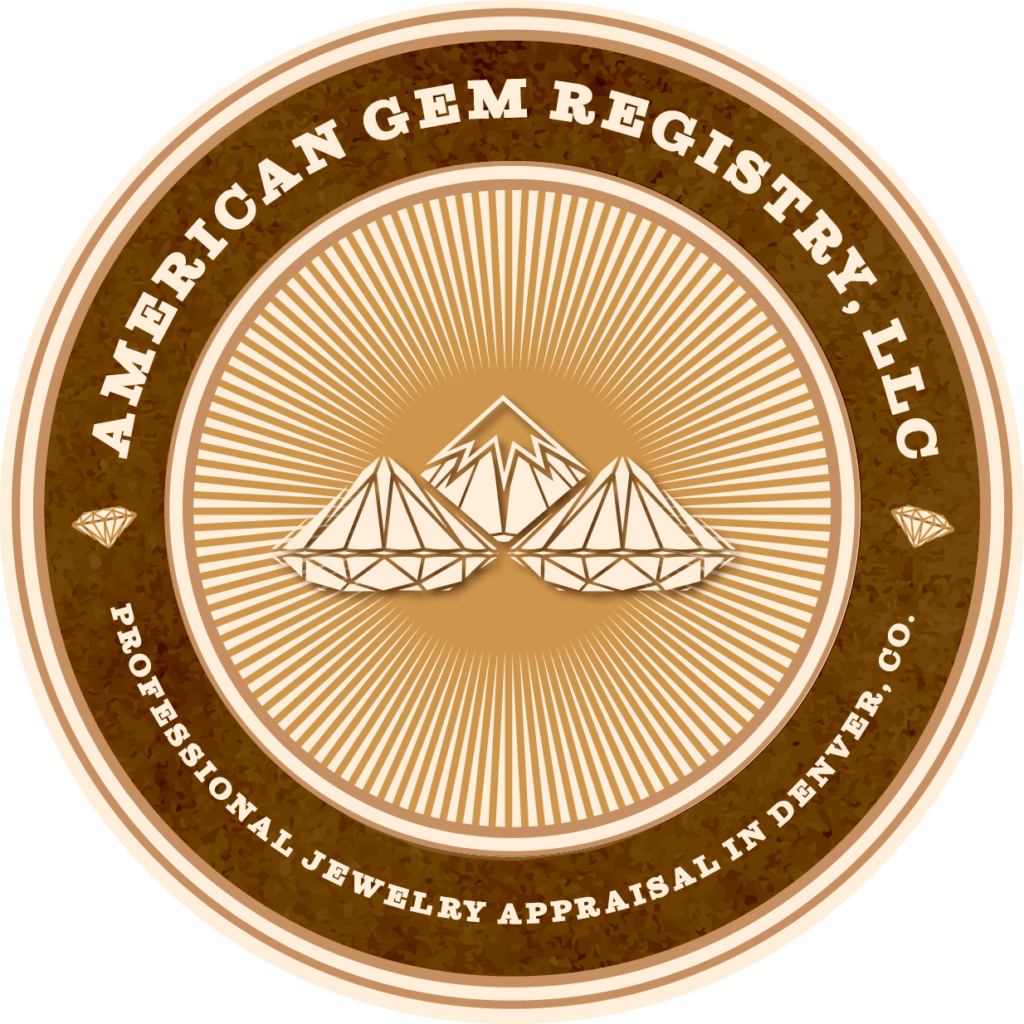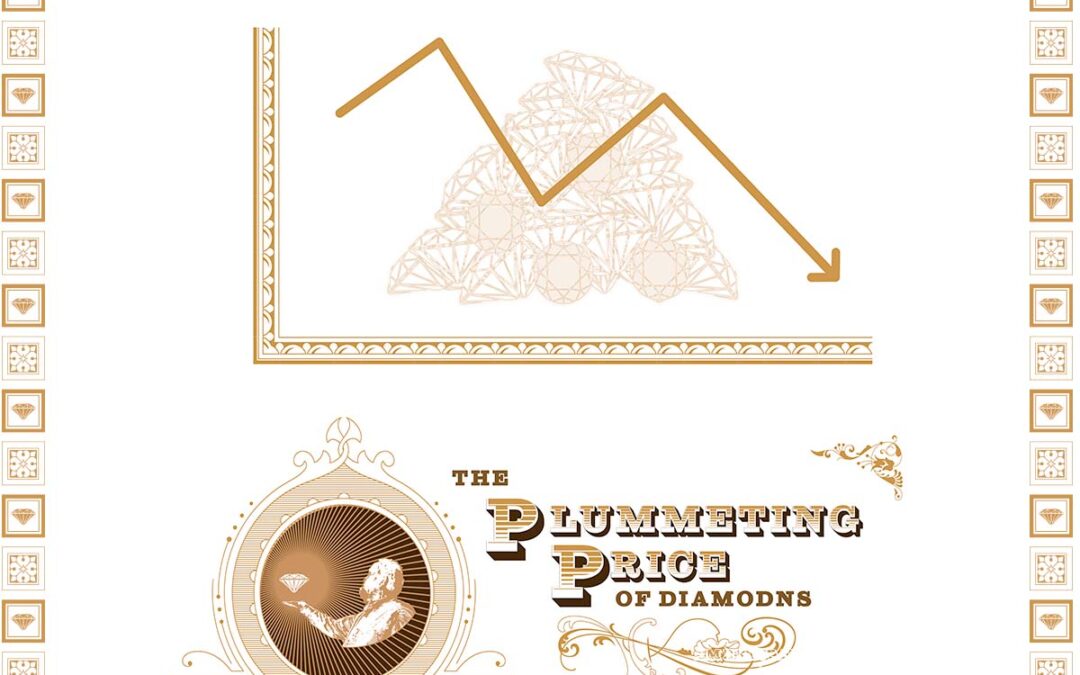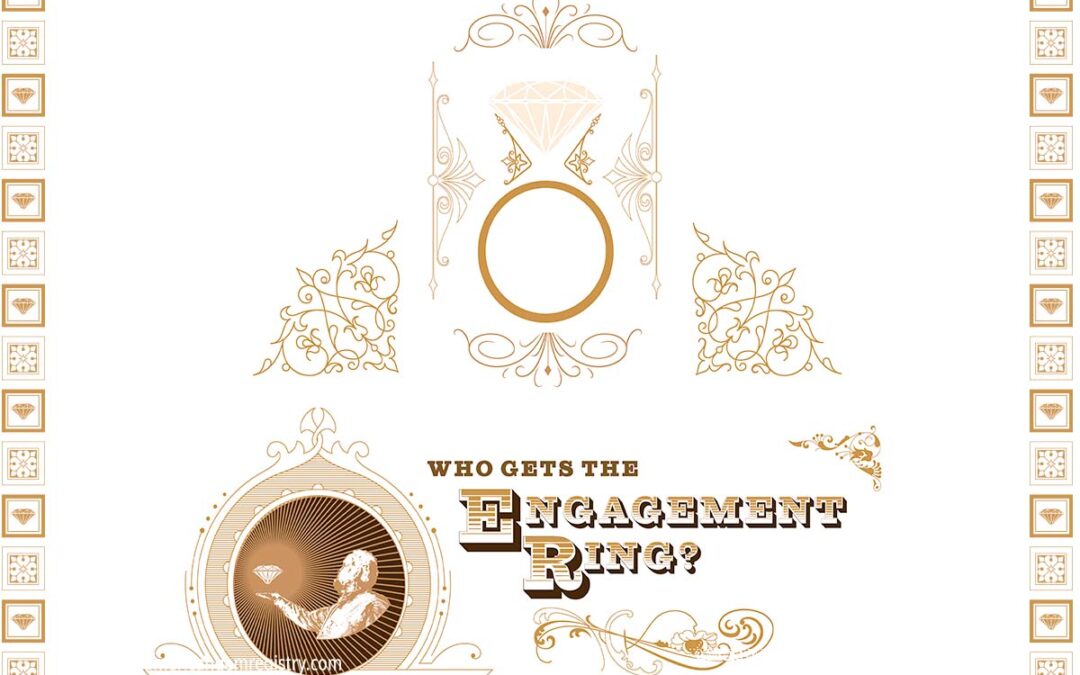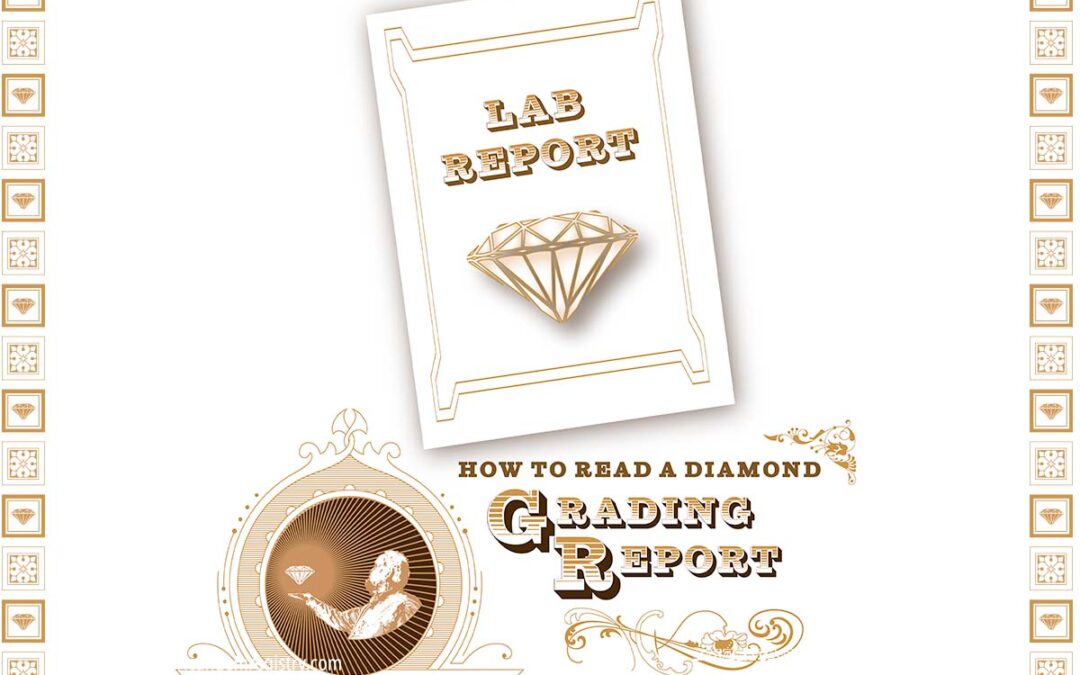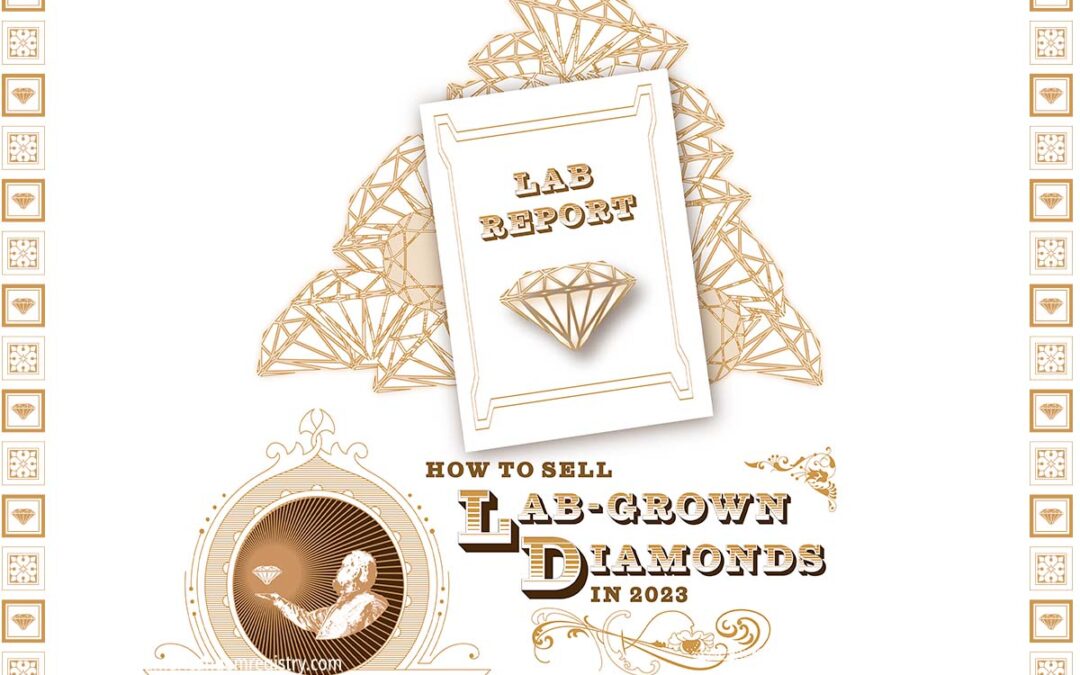“A diamond is forever.” Everyone has heard this slogan to advertise DeBeers’ diamonds, and it’s basically true. Al though you can break or lose them, diamonds are not particularly perishable. This has created a whole segment of customers who find that they have diamonds that they no longer need or want and who would just prefer money instead. What do you do with a diamond from a failed relationship, that has been inherited, or that you simply don’t care for anymore?
Consumer Tips for Selling Diamonds
Understanding Diamond Reseller Markets
The same item can be worth a different amount depending on what market is chosen.
This is a key concept in the appraisal business but it seems sort of academic to appraisal clients. It really hits home when it becomes time to sell. The amount you realize can be vastly different depending on what market you select. You can’t always choose the one that pays the most. Actually, you almost never get to choose the one that pays the most.
Different Market Types: Jewelers vs Pawnbrokers
Most customers aren’t expecting top dollar when they sell to a pawn shop. What they expect is prompt service and immediate payment and they are willing to accept a lower price in exchange. They want to be able to walk into the store at 11:00pm and walk out with cash in hand and to have no further relationship with the dealer. The pawnbroker is assuming all of the risks and they rightfully expect to be paid for this service.
On the other extreme, it’s possible to open your own jewelry store. If you decide to you can rent a space, hire some employees, and buy some advertising, you will get to charge and get higher prices. Maybe just put up a website. How hard can it be? (Hint: Harder than you think).
Which Market Will Pay More?
I don’t mention this because I’m specifically recommending either approach but rather as an illustration that what the jewelry store owner and the pawn shop customer are doing are very different scenarios, even though each could be described as ‘selling jewelry’. Each is trying to earn as much profit as possible and each has a different set of requirements. It’s not at all clear who will end up with the most money in their pocket at the end. There are a substantial number of choices between these two extremes. It’s important to understand what you are trying to accomplish. In general, the markets that pay better will require more work, more investment, and more risk on the part of the seller and you should decide in advance what you are willing to offer. Here are few things to consider:
Things to Consider When Choosing Your Reseller Market
- Will you agree to payment terms?
- Will you accept a consignment arrangement where you are paid only after it sells?
- Will you offer a refund period?
- Do you want an ongoing relationship with the buyer to sell other items?
- Are you prepared to pay commissions or finders fees?
- Do you mind people coming to your home or office to examine the piece?
- Are you willing to pay up-front costs like appraising, repairs, and advertising?
- Can you wait for weeks, months or years before it sells?
- What is your tolerance for risk?
Asking yourself questions of this nature will help you to decide what kind of buyer you are seeking, where you will look for them, and how much you should expect to charge.
What, Where, and How
The first step in any sale is to make sure you understand what you have. You may have paperwork supplied by the original seller and you should take an opportunity to look through it.
Diamond grading reports are especially important if you have individual stones larger than about half a carat. You may have paperwork that describes the total weight of the stones, the caratage of the metals, the designers certificates or other types of paperwork that may be important to the buyer. Decide if the paperwork is reliable and useful. This is tough. Don’t worry about prices – We’ll get to that later. The question is to make sure you really understand what you have and that you have credible paperwork to describe it to your potential customer. Individual customers usually require more in the way of paperwork than dealers but everyone is going to want assurance that you’re selling what you say you’re selling. Put yourself in the buyer’s shoes. Would you buy based on what is being supplied?
Consider an appraisal
It is often helpful to consult with an appraiser early in this process. Tell them what you have in mind and ask for advice. They should be able to give you an accurate description of what you have, and can tell you what to expect in the way of prices in your selected marketplace. They may also be able to help you to find an appropriate market to fit your situation. This is especially true for items that are going to be very expensive and for which minor misunderstandings can be costly for either you or the buyer or when choosing the wrong market can be a costly mistake.
About Jewelry Appraisals (Including Ours)
Jewelry appraisals are a completely unregulated business in the United States and they can cause a fair amount of confusion for both consumers and the industry. To be useful, an appraisal report must contain a description of the item, a price, and an explanation of what market is being described. If this discussion of the market is absent, or it describes a market other than the one that you are selling in, the value conclusions may be completely inapplicable.
If you’ve already got an appraisal, read it.
Critically. The market being described in most jewelry appraisals is an estimated replacement cost new, at retail, in the local market of the appraiser. Often even these qualifiers aren’t enough and it may not even be an accurate depiction of that. Be careful about basing important decisions on an appraisal that you don’t understand or from an appraiser that you don’t recognize and can’t investigate. The retail marketplace being described is not usually where you will be operating. Your item is probably used, you probably don’t own a jewelry store, and you may not even live in the same country as the appraiser. These are important details to consider.
Even if the above is the case, the report may still be something that you are planning to show the client because you like the bottom line. This is a marketing decision that many people choose to make but you should not rely on it to set your prices, even with some applied discount. Your customer shouldn’t either. Applying a formula to the ‘appraised value’ is likely to leave you with a terrible misunderstanding of what you should expect and will often result in asking too little (which is money right out of your pocket) or asking too much (which prevents the sale from happening at all).
The Most Important Part of the Appraisal
In an appraisal report, the descriptions are usually more important than the price. In most cases, this will be the most important part of the document. Be sure you understand what is being said and how the appraiser came to their conclusions. If you are using the appraisal to support natural gemstone origin, for example, make sure that this information is contained in the report. Critical reading is important. Describing your Rolex as a ‘Gents gold colored watch in excellent running condition’ may be technically correct but it entirely misses the point. If they don’t call it a “natural gemstone,” for example, don’t assume that it is.
Who Buys Diamonds?
Types of Diamond Reseller Markets
Pawnshops, Street Dealers, Jewelers
In almost every city there are people who have storefronts that advertise that they will buy diamonds and jewelry. There are also online buying companies that will compete for your business. These stores will usually pay what is called ‘salvage value’ for your jewelery.
Salvage Value
Most dealers will plan is to remove the diamonds and sell them back into the wholesale jewelry chain. They’ll melt the gold at the refinery and move on to the next item. They usually don’t pay very well but they always pay fast. Expect about 50% of the gold prices listed in the newspaper. Expect almost nothing for diamonds below 0.25cts. and expect about 25-50% of “wholesale” prices for your major diamonds. If you don’t have paperwork, such as GIA reports, to back up your grading, you can also expect that they will disagree about the grading of your stone and that the offer will be based on their grading, not yours.
Consignment Jewelers, Antique Stores and Brokers
Some jewelry stores will allow you to put your item in their inventory for sale to their customers in exchange for a commission that will range from 10%-50% of the selling price. The commission rate will vary depending on the item and the store. They will tell you at the beginning how the pricing works with their particular store. Most consignment stores sell directly to customers. They offer discounts but this almost always results in more money than an outright sale to the jeweler would. There are quite a few different styles of consignment dealers in this business. They range from antique stores, to full-blown jewelry stores, to people who will assist you with your online auctions.
There are some important things to consider before you enter into this kind of arrangement:
1) Can The Store Actually Sell The Diamond?
But can the store actually sell it? Since they have no investment in the inventory, they have a reduced incentive to make the sale. There are probably other items in the case that they own that will bring a higher profit and they may be more interested in selling those. The store should be able to provide you references of customers who have successfully sold things through them.
2) Do They Pay Their Bills?
Do they pay their bills? Check up on them through the BBB and similar groups to be sure that you will actually get paid after the sale. It’s a bad sign if the sellers you before you report a problem here.
3) How Long Will It Take To Sell Your Diamond?
Often this can take quite a while, especially for unusual pieces. The store should be able to give you an idea how long you should expect to wait for a sale but they won’t be making any guarantees. Make sure you don’t have a problem with the schedule.
Often this is the best choice for people who can find a customer. The difference between the retail price that your friend is going to pay to get one at the store, and the salvage price that you may be required to sell for can be substantial. There is room for you to make some extra money and for them to get an extra discount. Everybody wins.
Facebook, Ebay, Craigslist, and Online Markets
Ebay can be a great boon for consumers selling although it can be difficult to get top dollar. Ebay customers are looking for a deal and if they don’t get it from you they will quickly move on. Use the ebay search function to see what else is for sale that has a similar description to yours.
- Notice how many competitors you have.
- Check the ‘completed auctions’ box and pay special attention to the ones that actually sold.
This will give you a feel for what kind of prices to expect as well as what sorts of documentation seem to be required by customers. Read their advertisements. Notice which items have been sold by dealers who offer additional services or have substantially better feedback scores than you. These can be an important issue for buyers and you want to be sure that you are comparing yourself to sellers that are similar to you.
Auction Houses
Jewelry is a common item at the auction houses, such as Sotheby’s, Christies, and regional houses in nearly every city. For very costly items, this is actually the typical way that they are sold. Most cities have auction houses that periodically sell jewelry in the mid-price ranges that may be willing to consider your item. They charge a commission to both the buyer and the seller that usually ends up totaling about 25% of the actual sales price. If you live in a smaller city, they may only have an appropriate auction a few times per year. The auction houses are listed in the telephone book and they should be able to tell you over the phone if they carry jewelry and how their program works.
For major items, this is the usual way things are sold. Work through a gallery or an appraiser to get the auction house to consider your item. There are usually some upfront fees including listing fees, shipping fees, appraisal fees, and photography fees as well as a commission to be paid if it actually sells. For the right items, this can be worth it but it’s not for everybody.
How Is Pricing Determined?
Pricing is dependent on two things: What you have and what market you are selling to.
By now you should have a pretty good idea about both of these. If you can, go into that market and shop. On eBay, shop the other sellers with similar items. With a consignment shop, go visit similar stores and see what they are charging for items like yours. If you are selling through a major auction house, look at prior auctions of similar items to get a feel for what to expect, make sure to notice if it actually sold or not.
If you don’t want to take the time or do the legwork to do the pricing research, consider hiring an independent appraiser to assist. They have a fair amount of experience at this and should be able to give you good guidance for a reasonable fee.
What if the Selling Price Isn’t What You Wanted?
Customers are often surprised at how different their selling prices may be from the actual prices they paid or the prices listed on an ‘appraisal’. Many jewelers specialize in taking the pieces (like diamonds and other gems) from old jewelry and making a new piece that suits your own style or current tastes. Broken or obsolete watches can be restyled into bracelets. Cufflinks can become earrings. This can be a way to get a brand new piece without the need to buy a new diamond, often the most expensive component. Your jeweler should be able to help you with recommendations and give you an estimated price.
Would You Like An Appraisal?
The American Gem Registry provides a variety of jewelry appraisal services in Denver, Colorado:
- Gem and Jewelry Appraisals
- Estate Evaluations
- Expert Witness
- Pre-Custom Consultation
- Re-Cut Consultation
- Damage Consultation
- Restoration Evaluation
- Re-Cut Consultation
If you have any questions, please call during my normal business hours at the number below or you can schedule your Jewelry Appraisal Appointment online today!



